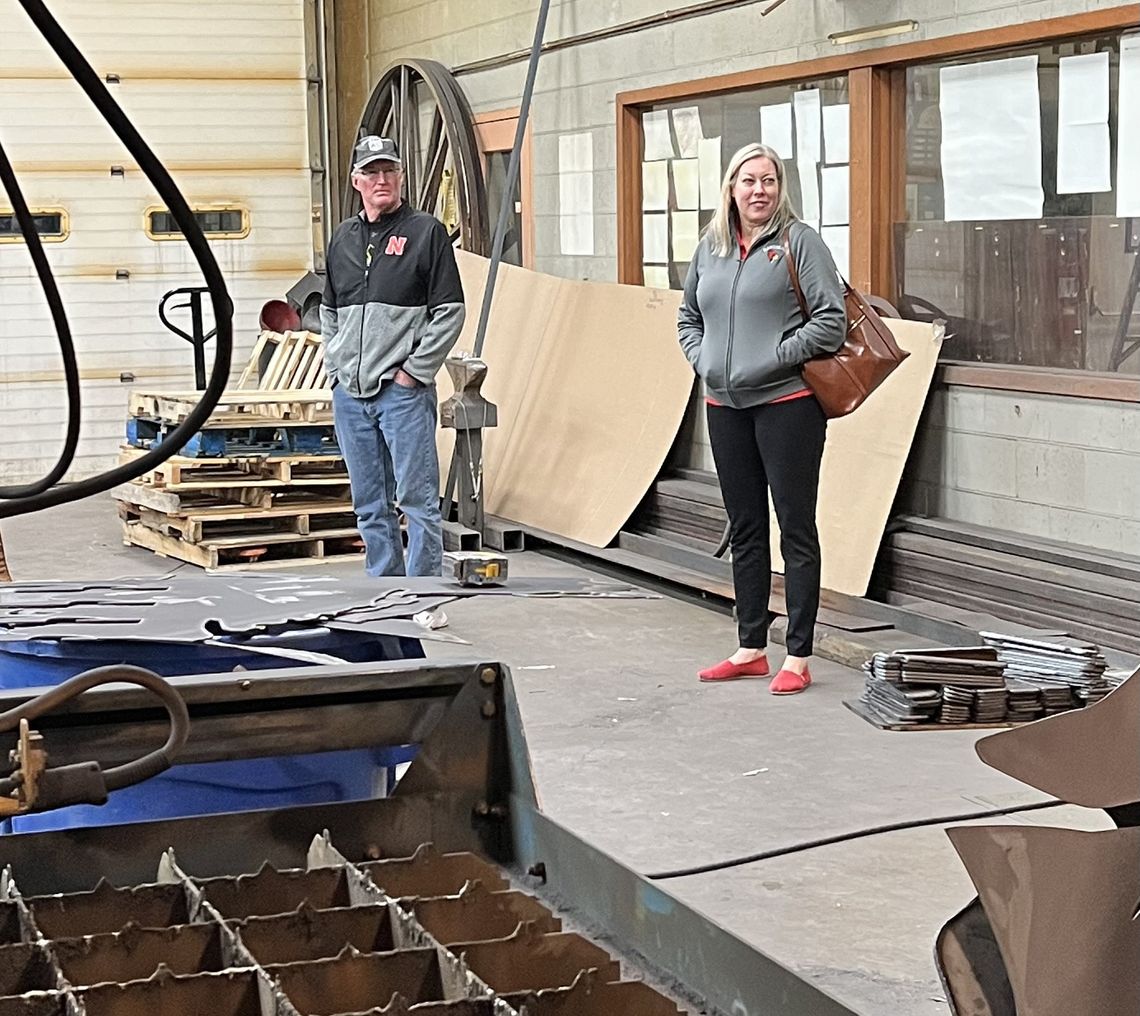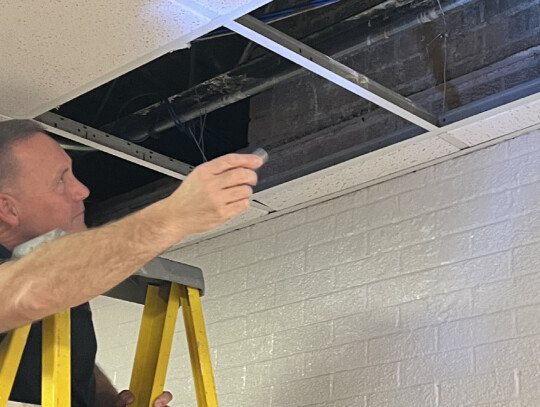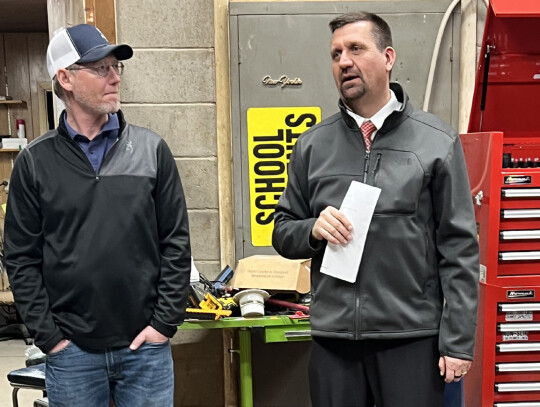RANDOLPH – Randolph school board members have plenty to think about after a school facilities review and tour outlined potential school building improvements.
The school board met for a board retreat Monday night along with representatives from Fakler Architects, Beatrice, and BD Construction, Kearney. The firms created a facility improvement plan and audit of Randolph Public Schools.
Board member Lucas Miller was excused from the meeting and two from the public attended. No action was taken after the three-hour meeting.
At Monday’s meeting, a master list of potential needs and wants that totaled more than 40 items was presented, including the ongoing need for a new vocational ag building.
“The Randolph board for some time now has been looking at our ag building and has been prudent and fiscal with the taxpayers’ money, putting that into the building fund with the intent of paying for that building through that (fund),” said Superintendent Daryl Shrunk. “COVID hit and everything went through the roof.”
The board started levying monies into the special building fund in 2021 to potentially build a new vocational ag building that would also house the art program, and the special building fund currently stands at about $1.3 million.
Built in the late 1960s, the two existing ag buildings total 7,900 square feet and were not built to house the current equipment being used. Having two separate buildings is not ideal for safety and it limits the number of students in those courses, according to previous board discussions.
Fakler developed the original plans for a new building, but the board tabled continuing with the project in 2022 .
In September 2020, former Superintendent Jeff Hoesing estimated a cost of $100-$120 per square foot. But a little more than a year later, that amount had doubled to $240 per square foot. The one bid received in 2022 came in at $304 per square foot.
Other items included in the master list of potential improvements include a new bus barn, asbestos abatement and HVAC system replacement at Randolph Elementary, and entrance security upgrades at both schools, among a “laundry list” of others. Asbestos abatement would need to be completed prior to many potential improvements at the elementary.
The list includes staff input as well as input from the board’s building and grounds committee, and items noted during the facility audit. The next step would be for the school board to identify any other needs and prioritize potential projects.
From there, community input would be sought through the focus of a steering committee, and small group and town hall meetings.
“Some of these things are wants and needs, but at this point, we’re just trying to get everything out there for discussion purposes,” said Michael Fakler, president of Fakler Architects. “We’re hoping that (the) school board and patrons will add to or take away from this list. This is by no means a complete list and we’re definitely looking for additional input.” As part of the discussion, Tobin Buchanan, managing director of First National Capital Markets, presented several different financing options to complete school improvement projects, including a purchase lease for new construction; Qualified Capital Purchase Undertaking Fund (QCPUF) bonds for renovations; or a bond issue that could be for new construction or renovations. Using a purchase lease or QCPUF would only require approval by the board while a bond issue would require approval by a majority of voters residing in the district.
Randolph Public Schools currently has one of the lowest tax levies in the area at 41 cents, while nearby Wayne, Winside, Wausa and Pierce public school tax levies come in more than double that.
.jpg)











